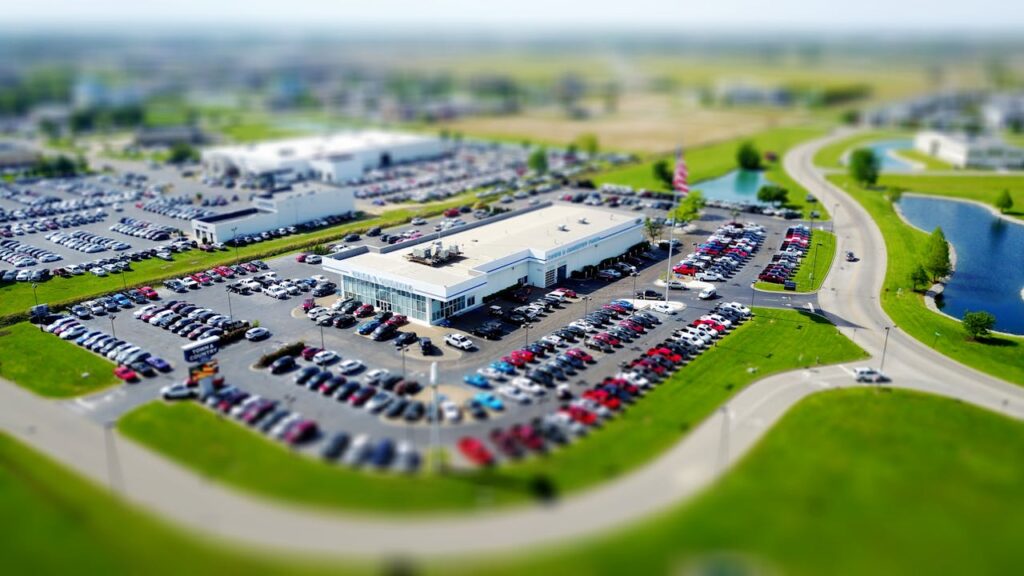Taking Time to Take Inventory: Considerations Before Buying a Car

Buying a Car
Walking into a car dealership with nothing but a dream and a robust bank account is a bit like walking into a jungle without a map or a compass.
While the latter scenario might make for a good adventure tale, the stakes are considerably higher when it comes to securing an investment like a vehicle.
In this post, we’ll equip the prospective car buyer with some helpful tips, guiding them through the key considerations to take before making that pivotal purchase.
This isn’t just another “how to haggle” guide — this is about arming you with the knowledge you need to make a purchase you won’t regret.
New or Used? Debunking the “New is Always Better” Myth
The decision to buy a new or used car is one of the most fundamental choices any car buyer must make.
Many people lean towards new vehicles, assuming they are inherently more reliable and less costly in the long run.
However, the depreciation of new cars in the first few years can be staggering, often losing around 20% of their value as you drive them off the lot.
Buying used can save you a significant sum of money, and with industries like certified pre-owned (CPO), it’s becoming easier to find a used car that’s still in great condition.
In debunking the “new is always better” myth, the real advice is to carefully consider your financial situation and prioritize needs over wants.
Make, Model, and Mileage: The Triumvirate of Choice
The car’s make and model will largely dictate your experience as a driver, from performance to comfort to fuel economy.
Before browsing lots or websites, ask yourself what you value most in a vehicle.
Is it safety features? Reliability? A smooth and comfortable ride?
Mileage is another critical aspect of the car’s history, often serving as a proxy for age and condition.
High mileage isn’t always a problem, especially on well-maintained vehicles with a reputation for durability.
Conversely, low mileage on a car that hasn’t seen regular maintenance can lead to its own set of problems.
One easy tip is to go with what you know: if you’ve had good experiences with a particular type of car, buying a new(er) version of it can be a reliable choice.
Many people grew up driving their parent’s car, and from battered Honda Civics to GMC trucks there are many old cars out there that live on in the memories of those who drove them.
Look for familiarity at the dealership, and you’ll have a better idea of what to expect from your purchase.
Finances: Beyond the Sticker Price
A common pitfall for car buyers is focusing solely on the sticker price.
In reality, a slew of other costs accompanies car ownership: insurance, maintenance, fuel, and — if you’re not paying in full — interest on auto loans.
Don’t forget to consider the extra features or add-ons you may want (or not want).
Create a comprehensive budget that takes all these expenses into account.
his will give you a more accurate picture of the financial commitment you’re about to make and whether it’s sustainable in the long run.
The Long Road: Assessing Long-Term Costs
Beyond the upfront and immediate costs, it’s crucial to think about the long-term financial implications.
Some cars may have higher maintenance costs or be more susceptible to specific mechanical issues.
Research typical problems with certain makes and models, and even consider reaching out to current owners for their experiences.
This can also be an issue when it comes to replacing broken parts, as some cars have more specific needs than others Electrical vehicles will often have more advanced hardware powering their systems, which are not friendly for DIY car mechanics.
Sometimes it takes a full auto diagnostic to figure out what’s wrong with your car, and the kind of car you have can influence the cost of the process.
Driveability and Accoutrements: Don’t Forget to Test Drive
A car’s personality and suitability for you can only truly be assessed through a test drive.
Pay attention to how it feels on the road — acceleration, braking, and how well it takes corners.
Comfort is also key: adjust the seats, play around with the controls, and ensure everything is ergonomic.
Additionally, be mindful of the tech and extra features.
Today’s vehicles are often loaded with smart systems that can enhance safety and the driving experience.
Still, they can also complicate the vehicle and be a source of ongoing issues. Determine what’s essential and what’s just nice to have.
Final Thoughts
Buying a car is a complex transaction with layers of considerations — from financial to personal to practical.
Taking the time to think through each of these steps will lead to a more informed decision and, hopefully, a car that will serve you well for years to come.
Remember, the right car doesn’t just fit your budget — it fits your life.
Category: Car Purchase




